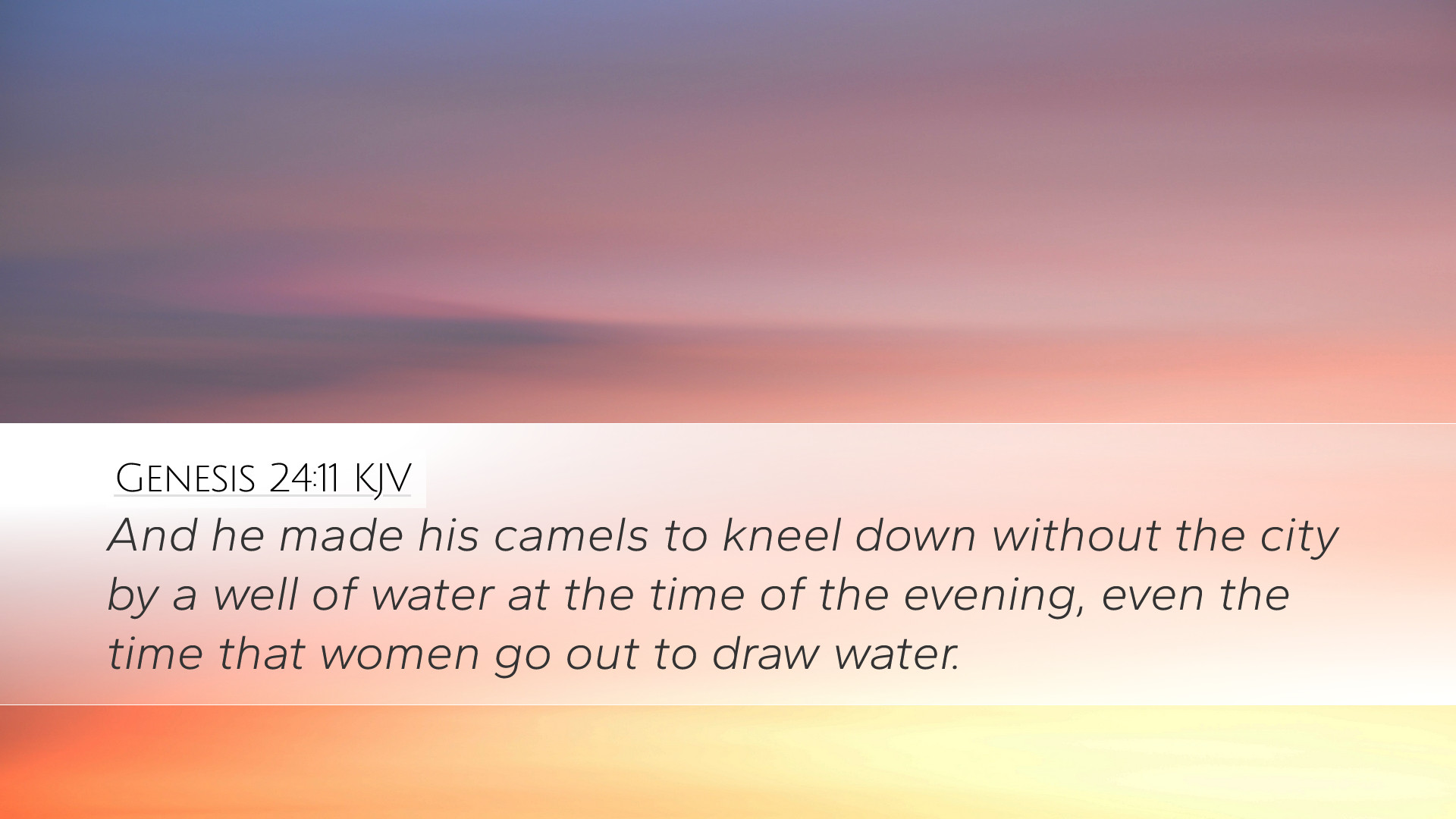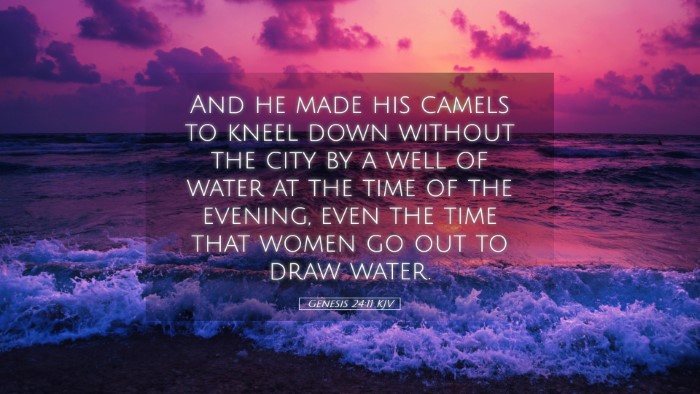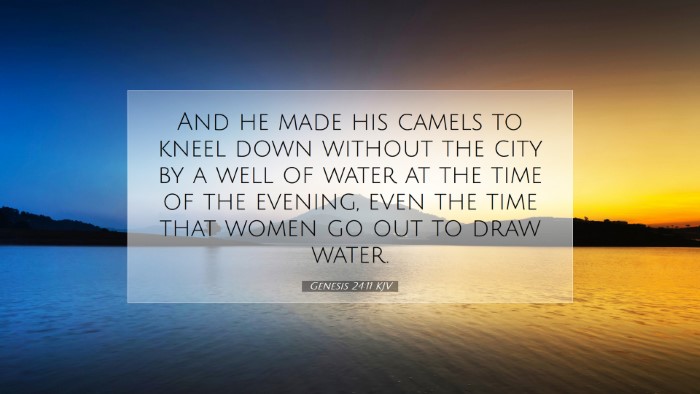Commentary on Genesis 24:11
Verse Context: Genesis 24:11 states, "And he made his camels kneel down without the city by a well of water at the time of the evening, even the time that women go out to draw water." This verse introduces a significant moment in the narrative of Abraham’s servant seeking a wife for Isaac.
Overview of the Significance
This verse sets the stage for a critical event in the unfolding of God's covenant plan with Abraham's family. In the ancient Near Eastern culture, the act of drawing water was typically performed by women, and this moment captures the social norms and anticipates the forthcoming encounter.
Commentary Insights
Matthew Henry's Commentary
Preparation for Divine Guidance: Matthew Henry emphasizes the importance of preparation in seeking God’s guidance. The servant's action of making the camels kneel signifies a deliberate pause to seek God's direction. It speaks volumes of the servant’s faithfulness and diligence in fulfilling his master’s wish, which serves as a model for believers in prayerful preparation.
Symbolism of the Well: The well represents a source of life and sustenance. It is a place where the servant would encounter potential candidates for Isaac’s bride. This well metaphorically illustrates how God provides opportunities and sustenance for His plans, reminiscent of the living water Christ describes in John 4.
Albert Barnes' Commentary
The Servant's Intent: Barnes notes that the servant acts with both obedience and prudence. His decision to wait by the well at a strategic time underscores the combination of divine providence and human effort. The servant's character is highlighted, demonstrating his earnestness to seek a suitable spouse for Isaac, reflective of God’s covenant intentions.
Cultural Context: The timing of evening as the moment when women come to draw water gives insight into the customs of the day. This reveals the societal roles and responsibilities, illustrating the environment where women play a crucial role in familial and social structures. Understanding these customs enriches our interpretation of the narrative, emphasizing the Lord’s involvement in everyday life.
Adam Clarke's Commentary
The Role of the Camels: Clarke draws attention to the practical aspects of the camels kneeling, symbolizing a moment of rest and reflection. The servant’s need to rest the camels aligns with the concept of preparation for ministry. The act serves a dual purpose: it provides physical respite and symbolizes the servant’s waiting on the Lord for guidance.
God's Timing: Clarke further elaborates on the significance of timing in God’s teachings. Choosing the evening as the time for gathering provides an opportunity for divine providence in action. It illustrates that God's plans unfold at the perfect moment, a principle that carries weight in theological discussions about divine timing in our lives.
Applications for Readers
- Prayerful Preparation: Just as the servant took time to prepare and seek divine guidance, pastors and students must engage in prayer before embarking on significant endeavors.
- Divine Providence: The verse underlines the power of God’s providence in everyday circumstances. It encourages believers to trust in God’s timing and provision, recognizing that He orchestrates events to fulfill His promises.
- Understanding Cultural Context: Engaging with the cultural dimensions of Scripture enhances our understanding. This verse invites scholars and students alike to delve deeper into the social norms of the time for richer interpretations.
- Symbolism of Water: The symbol of water as a source of life can lead to deeper theological reflections on how Christ is the living water for believers. This connection should be explored in sermons and studies.
Conclusion
Genesis 24:11 encapsulates a moment of divine planning through diligent obedience. The insights drawn from public domain commentaries illuminate the text, making it a valuable resource for pastors, theologians, and students. This account invites readers to reflect on preparation, the significance of divine timing, and the assurance that God is actively involved in the pursuits of His people. As we engage with this text, we are encouraged to posit ourselves in expectation of God’s guidance in our own life journeys.


